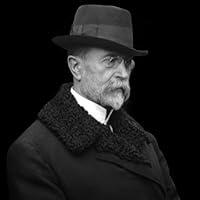
Tomáš Garrigue Masaryk
À propos de l'auteur
Tomáš Garrigue Masaryk was a prominent Czechoslovak politician, philosopher, and sociologist, best known as the founder and first President of Czechoslovakia. He played a critical role in establishing the Czechoslovak state after World War I, advocating for democracy, national self-determination, and social justice. His scholarly work encompassed a range of topics, including philosophy and sociology, and he was deeply influenced by the ideas of social reform and human rights. Masaryk's commitment to education and civic responsibility resonated throughout his political career, and he sought to promote a culture of dialogue and understanding among diverse ethnic groups in the newly formed nation.
As a thinker, Masaryk was influenced by various intellectual currents of his time, including Marxism, although he critiqued many of its tenets. He emphasized the importance of moral values in governance and was a staunch advocate of democratic principles. His legacy is characterized by his efforts to build a cohesive national identity while respecting individual freedoms and minority rights. Masaryk's work continues to inspire discussions on democracy and social justice in the modern era.